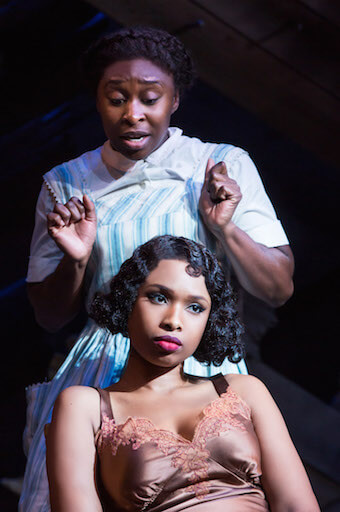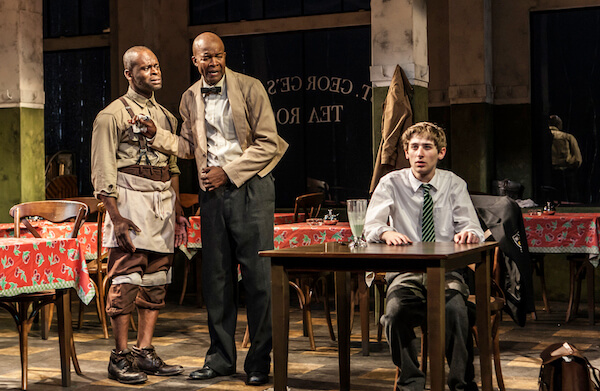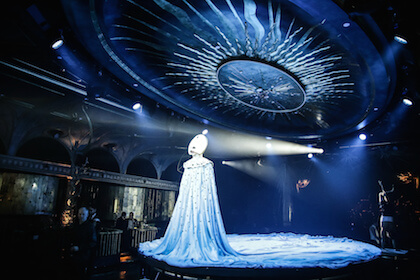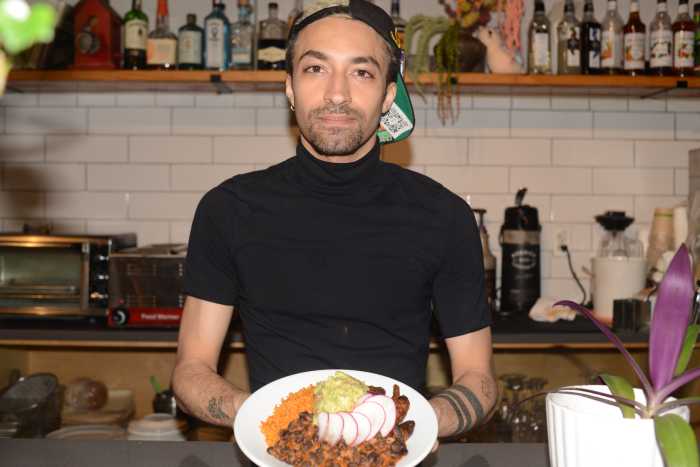At its heart, “The Color Purple” is about the sustaining and healing power of love. So powerful is that message in the glorious new revival on Broadway that at the end of the performance I saw, the strangers next to us and in front of us introduced themselves and engaged us in conversation about the experience we had just shared.
That is no common New York experience, but the “Color Purple” is no common revival. Stripped down to its essence by director John Doyle, this production achieves a level of emotional depth and raw immediacy that eluded the original production. The 2005 production was freighted with an overblown production that obscured the characters and the story. Doyle, in contrast, relies on the power of his actors and the story to draw in the audience and create theatrical magic. On a set that is reminiscent of the one he used for his revival of “Sweeny Todd” — essentially a wooden scoop that goes from the apron of the stage into the flies — the staging is consistently clear, fluid, and at times breathtaking in its simplicity.
Marsha Norman’s book, based on the Alice Walker novel and the subsequent movie, tells the story of two sisters in rural Georgia 1909 — Celie, who is pregnant for the second time by her stepfather who disposes of the baby and threatens to kill her if she talks about it, and Nettie, who dreams of being a schoolteacher. When a man known only as Mister comes for a wife, he wants to marry Nettie, but her stepfather says she is too young and gets him to take the less attractive Celie, with a cow thrown in to sweeten the deal. Nettie later comes to live with Celie, but runs away after Mister tries to attack her.
Don’t miss the magnificent revival of “The Color Purple”
Bereft, Celie resigns herself to a life of hard labor. Insult adds to injury when Mister’s old flame, Shug Avery, a beautiful singer, arrives and takes up with him again. But an erotic relationship begins between Celie and Shum, who defends Celie and gives her letters from Nettie that Mister has hidden.
Eventually freeing herself from Mister, Celie, with Shug’s encouragement, sets up her own successful business. In time, Mister sees the error of his ways and, seeking redemption, helps reunite Nettie and Celie, finding that the power of love can heal even him.
The music and lyrics by Brenda Russell, Allee Willis, and Stephen Bray, can at times be clunky, but when it soars it is affecting and sumptuous. As sung by the cast, any imperfections are instantly overlooked as this is one of the most accomplished cast of singers to be seen in a while. The voices are spectacular individually, and under the musical direction of Jason Michael Webb, the choral work is some of the best you’re going to hear anywhere.
As for the actors, Danielle Brooks as the brassy and strong-willed Sofia, who marries Mister’s son, gives a rich and fully developed performance. Sofia is nearly defeated when she is beaten and thrown in jail, but she overcomes the hardship. Brooks’s performance is both broad and detailed, getting every laugh while touching your heart.
Jennifer Hudson is magnificent as Shug. She sings and moves beautifully, and her two songs nearly stop the show. For all her star power, Hudson also deserves credit for integrating seamlessly into the ensemble when needed, though I can’t wait for the cast recording to hear her sing “Too Beautiful for Words” again and again. One of the most lyrical songs in the show, it’s a perfect showcase for Hudson’s voice and emotive power.
The night, however, belongs to Cynthia Erivo as Celie, who does stop the show dead in the second act with her performance of “I’m Here,” an 11 o’clock number to end all 11 o’clock numbers. Erivo originated the role of Celie in the Menier Chocolate Factory production in London that this production is based on. She has a thrilling voice — making the hair on the back your neck stand up in the most amazing way — and brings a sensitivity and complexity to Celie that will touch your heart and keep you on the edge of your seat. Like the overall production, Erivo is very economical, but in that economy finds a theatricality that is revelatory.
Isaiah Johnson is superb as Mister, managing his transition from bad guy to loving grandpa believable and touching.
That this revival is so splendid is an unexpected pleasure. It’s a testament to Doyle’s vision to be sure, but even more it’s a beacon of how simple, straightforward, and honest storytelling can create dynamic, moving, and unforgettable theater. Don’t miss this show.
THE COLOR PURPLE | Bernard B. Jacobs Theatre, 242 W. 45th | Tue.-Thu. at 7 p.m.; Fri.-Sat. at 8 p.m.; Sat.-Sun. at 2 p.m.; Sun. at 7:30 p.m. | $75-$145 at telecharge.com or 212-239-6200



































